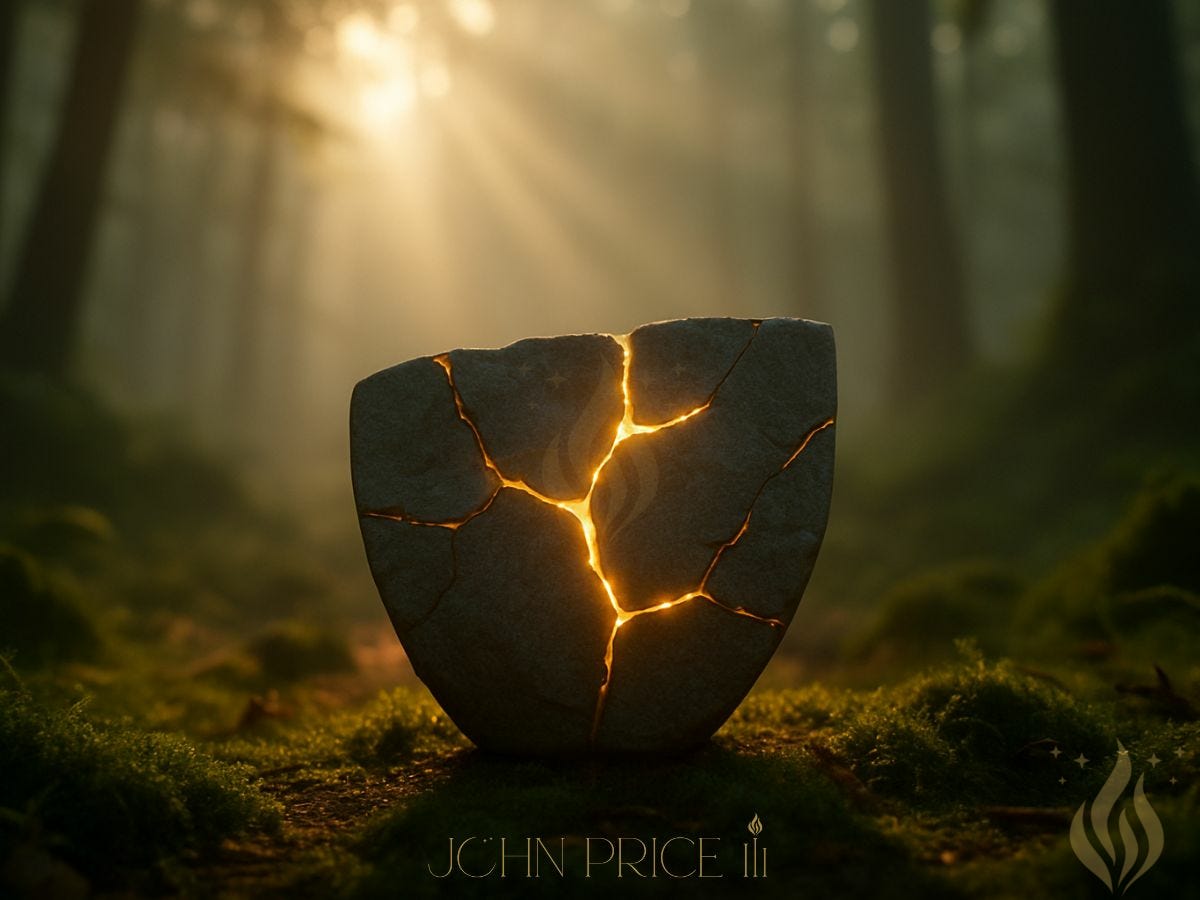The Prison of Guilt and Shame
A reflection on self-forgiveness, release, and the freedom waiting beneath self-punishment.

There’s a kind of prison that needs no walls, no bars, no warden.
It’s built quietly within us, one thought, one regret, one “I should have known better” at a time.
This prison’s name is Guilt, and its long shadow that lingers even after the sentence has been served is Shame.
For most of my life, I believed guilt was proof of goodness.
If I felt bad enough, long enough, it meant I cared.
I thought shame kept me humble, kept me cautious, kept me from ever becoming the kind of person who caused pain.
Maybe if I locked myself away first, whatever judgment others might add would feel lighter. Because if we’re being honest, no one can punish me better than I can punish myself.
However, inside this inner prison, something dangerous begins to happen.
We start mistaking punishment for purification.
We convince ourselves the only way to prove we’ve grown is to suffer for it.
We say we’ve changed, yet drag our hearts behind us as evidence.
We shrink because Guilt and Shame don’t teach compassion.
They teach contraction.
We make ourselves smaller.
Our breath becomes shallower.
And the world feels colder.
Somewhere along the way, many of us learned a deeper story beneath all this: a story that said we were born flawed, born unworthy, born needing redemption from something we didn’t cause.
Forgiveness was framed as something external, granted by another, and earned through pain.
No one taught us what self-forgiveness looked like.
It’s no wonder we confused atonement with atoning forever.
We live in a culture that demands apology but rarely forgives.
We bow, we bleed, we promise to do better, and yet we rarely allow the possibility that we already are.
So, we keep wearing Guilt like a badge, Shame like a shroud, mistaking them for moral clarity when they are only self-abandonment dressed as virtue.
Then one day, there’s a moment when you realize you’ve been holding yourself hostage. That the only thing keeping you bound to that old story is your refusal to release the rope.
That moment found me in the depths of a breathwork session.
For years, I believed forgiving myself would betray the pain I had caused or erase the lessons I had learned.
But forgiveness isn’t the forgetting of truth.
Forgiveness is remembering without punishment.
It’s the difference between carrying a scar and keeping the wound open.
Guilt says, “You deserve this pain.”
Forgiveness says, “You’ve already suffered. Set it down.”
Shame says, “You are unworthy until proven otherwise.”
Forgiveness whispers, “You were worthy the whole time. You just lost sight of it.”
When that truth finally settled in, something softened.
I realized the people I’ve disappointed or hurt have every right to their boundaries.
They can choose distance.
They can choose silence.
And I can still choose peace.
At it’s very foundation, a true apology isn’t about earning forgiveness.
It is about embodying change.
We cannot force anyone to see our redemption, but we can live it.
We cannot rewrite the past, but we can stop rereading it.
There is a quiet absolution that arrives the moment we treat our humanness as holy — imperfect, evolving, always capable of healing.
Guilt’s prison door doesn’t open through explanation.
It opens through compassion.
And compassion doesn’t erase accountability.
It transforms guilt into wisdom.
So if you find yourself rehearsing the past today, tightening the chains of the what-ifs and should-haves, take a moment to breathe into this truth:
You are allowed to be free, even if someone else never says you’re forgiven.
You are allowed to live fully, even if someone else’s memory of you never changes.
You are allowed to begin again, right here, right now.
The sentence ended long ago.
The key has always been in your hands.
Reflection Prompt
Where in your life have you confused accountability with self-punishment, and what might change if you released the need to suffer?
I’d love to hear what this brought up for you.
Your reflections are part of the medicine, and every voice adds to the remembering of our collective sovereignty.
If this reflection stirred something within you, consider sharing it with someone who’s walking their own path of becoming. The ripples begin when we share the light we’ve found.
If you’re new here, welcome. I started Reflections from the Temple to be a space for those returning to their center — one breath, one truth, one remembrance at a time. Subscribe to receive each new reflection directly in your inbox.


